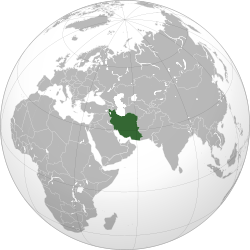Iran: Investigate Detained Blogger’s Death, Says HRW
Iranian authorities should investigate the death of a 35-year-old blogger in custody and immediately provide his family with information about the circumstances of his death. Initial reports suggest that he may have died from ill-treatment or torture, say human rights organizations.
The blogger, Sattar Beheshti was arrested by Iran’s cyberpolice on October 30, 2012, when they raided his mother’s home in Robat Karim, 25 kilometers outside of Tehran. The police confiscated a number of his personal belongings, including his computer. The police unit, also known as “FATA,” was established in January 2011 to enforce laws aimed at regulating online speech and content considered to violate Iran’s national security or moral legislation. People who spoke to the family told Human Rights Watch that the family tried to get information about Beheshti’s whereabouts and the reason for his arrest from security and judicial officials, but that they heard nothing until November 6, 2012, when police officials told the family he had died in custody.

“With more than a dozen deaths in the past four years, Iran’s prisons are rapidly turning into death traps for detainees, including people who should never have been behind bars to begin with,” said Eric Goldstein, deputy Middle East director at Human Rights Watch. “The onus is on Iranian officials, including high-ranking prison officials and members of the judiciary, to immediately come clean about what happened to Beheshti and punish those responsible.”
The exact circumstances and cause of death are not known at this point, and the authorities have not publicly accepted any responsibility for Beheshti’s death.
His death brings to at least 15 the number of people detained for exercising their basic rights who have since 2009 died in custody or as a result of injuries during their detention from alleged mistreatment or neglect. Human Rights Watch has compiled information from witnesses, family members, and other sources suggesting that at least 13 of them died as a result of physical abuse or torture. No high-ranking officials have been brought to justice for any of these deaths.
According to a report on BBC Persian, authorities buried him in Robat Karim, his hometown, but allowed only his brother-in-law to attend the funeral. A source close to the family told Human Rights Watch that after the family gave interviews to opposition websites about Beheshti’s death, the authorities have put tremendous pressure on the family to stop.
On November 6, 2012, reports surfaced on several opposition sites, including Kalemeand Saham News, both of which are close to opposition figures, that witnesses inside Ward 350 of Evin prison, where many political prisoners are held, had seen Beheshti with injuries on his arms, legs, and face. The unconfirmed reports said that Beheshti had been injured during his arrest and interrogation. The reports indicated that Beheshti’s family, including his ailing mother, became extremely worried about his health and tried to get information about his condition from Evin and other officials without success.
On November 8 Kaleme reproduced a copy of a letter allegedly written bv Beheshti in which he protested his ill-treatment at the hands of Tehran’s cyberpolice. The letter says the police threatened and beat him during interrogation sessions for two days. “I hold [the cyberpolice] responsible for anything that happens to me, and declare that any confessions taken from me were extracted under torture, which I was subjected to during my 12 hours in room 2 of Ward 350 [of Evin prison],” the letter was quoted as saying. Human Rights Watch has not been able to independently verify the authenticity of the letter.
In an October 29 blog attributed to Beheshti called “Criticism,” the author said he had recently been threatened over his blogging activities: “Yesterday they threatened me [and said] tell your mother she will soon have to don a black shroud because you refuse to shut your big mouth.” The author, without identifying who is threatening him, wrote that his harassers threatened to do whatever they wanted to him until and unless he stopped writing, but that he would not stay silent. Human Rights Watch has not been able to independently verify the authenticity of the blog post.
Officials had previously arrested Beheshti for his criticism of the government during student protests that took place in Tehran during July 2003.
